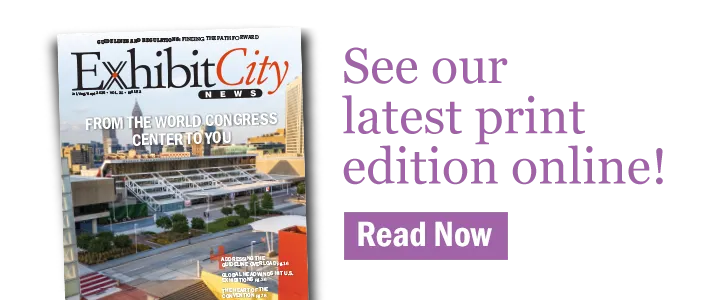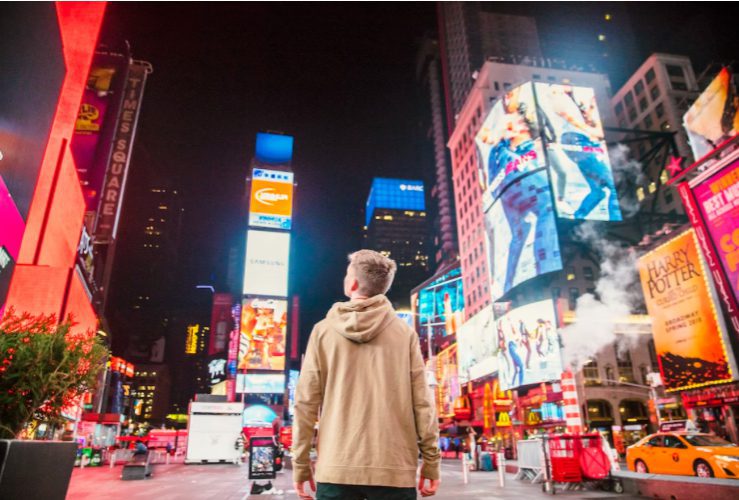by Aaron Mears, Asterisk Marketing
The world of advertising has always been a dynamic and ever-changing landscape. As technology continues to evolve at an unprecedented pace and consumer behaviors undergo constant transformation, the advertising industry finds itself at a crossroads.
In this guide, we’ll dive deep into the future of advertising, exploring the emerging trends and predictions that are poised to reshape the way brands connect with their target audiences. From the advent of cutting-edge technologies to the power of data-driven insights, we will examine the key factors that will define the future of advertising and shed light on what lies ahead for marketers and businesses alike.
The Rise of AI-Powered Advertising
One of the most prominent trends shaping the future of advertising is the rise of AI-powered marketing solutions. Artificial Intelligence has already made significant inroads into the advertising landscape, with the ability to process vast amounts of data in real-time and deliver personalized experiences to consumers. AI-powered algorithms can analyze consumer behavior, preferences, and past interactions to predict and serve highly relevant advertisements, making it more likely to capture their attention and drive conversions.
AI is also revolutionizing ad creation and optimization. It can automatically generate ad copy, images, and even videos based on target audience data, improving ad performance and reducing the time and resources required to produce compelling creatives. As AI continues to advance, we can expect to see a shift towards more automated and data-driven advertising campaigns, enabling marketers to focus on strategy and creativity while letting AI handle the minutiae of campaign execution.
Source: https://www.inter-contact.de/en/blog/influencer-marketing

The Evolving Role of Data in Advertising
Data has always been a critical component of advertising, but its importance is set to flourish exponentially in the years to come. With the proliferation of digital devices and the Internet of Things (IoT), vast amounts of data are generated every second. This data deluge presents both opportunities and challenges for advertisers.
In the future, data-driven advertising will become the norm, with marketers relying on insights from customer behavior, preferences, and contextual information to craft highly targeted campaigns. Utilizing advanced analytics tools, advertisers will be able to harness data to understand their audiences better and anticipate their needs, resulting in more relevant and engaging advertising experiences.
However, the increasing reliance on data also raises concerns about consumer privacy and data protection. Striking the right balance between data utilization and respecting user privacy will be crucial for advertisers to maintain consumer trust and compliance with regulations.
The Growing Importance of Augmented Reality (AR) and Virtual Reality (VR)
Augmented Reality (AR) and Virtual Reality (VR) technologies have been steadily gaining momentum in recent years, and their potential in advertising is enormous. AR and VR offer immersive experiences that blur the lines between the digital and physical worlds, enabling brands to engage consumers in exciting new ways.
Take real estate, for example. Imagine being able to view a house without having to leave the comfort of your own home. AR and VR can make this possible by providing an interactive, 3D experience that shows potential buyers what their dream property looks like in real life.
As AR and VR technologies become more accessible and affordable, we can expect to see a surge in their use within advertising campaigns. From interactive product demonstrations to virtual brand experiences, AR and VR will open up new creative possibilities for advertisers to captivate their audiences and leave a lasting impact.
The Power of Influencer Marketing in a Hyper-Connected World
Influencer marketing has emerged as a potent force in advertising, and its significance is only set to grow in the coming times. With the rise of social media platforms and the increasing popularity of content creators, influencers have become trusted voices for millions of followers.
As real estate companies look to reach more potential clients, influencer marketing will be increasingly utilized as a tool in their broader advertising strategies. Experts in the industry will collaborate with influencers who are knowledgeable and passionate about the real estate landscape, while also being able to relate to the target demographic of potential customers. Micro-influencers with smaller but highly engaged followings in the real estate space will also become a valuable asset for building relationships and generating leads.
To maintain authenticity and credibility, disclosure and transparency in influencer partnerships will become even more crucial. Consumers value genuine recommendations and trust influencers who are transparent about their brand collaborations.
Pay-Per-Click (PPC) Running On Automation
Automation is a growing trend in PPC advertising, and it refers to the use of algorithms and machine learning tools to automate many of the manual tasks that were once performed by human advertisers. This includes tasks such as campaign setup, bid optimization, and ad targeting.
One of the biggest advantages of automation is that it can help advertisers save time and reduce costs. With automation, advertisers can set up campaigns more quickly and efficiently, and they can optimize bids and targeting more effectively based on real-time data and insights.
Another advantage of automation is that it can improve campaign performance over time. Machine learning algorithms can analyze vast amounts of data to identify patterns and trends, and they can adjust bids and targeting accordingly to improve performance and maximize ROI.
The real estate industry is one of the industries that are benefiting greatly from automated PPC campaigns. With automated PPC campaigns, real estate agents can create highly targeted ads that are automatically shown to the right audience based on factors such as home price, location, and neighborhood. This can lead to higher quality leads, more conversions, and ultimately, more sales.
However, automation is not a silver bullet, and it’s important for advertisers to use it wisely. It’s still important for advertisers to set clear goals and strategies for their campaigns, and to monitor performance regularly to ensure that automation tools are working as intended.
Final Thoughts
The future of advertising promises to be an exciting and transformative journey. From the integration of AI-powered solutions to data-driven insights, and the immersive experiences of AR and VR, the advertising landscape will continue to evolve and adapt to changing consumer preferences and technological advancements.
Embracing these trends and predictions will be vital for marketers and businesses seeking to stay ahead in the fiercely competitive world of advertising. As we look ahead, one thing is certain: the future of advertising will be a fascinating amalgamation of creativity, technology, and consumer-centric strategies.
For more info: https://asteriskmarketing.co/real-estate-ppc-guide/
























